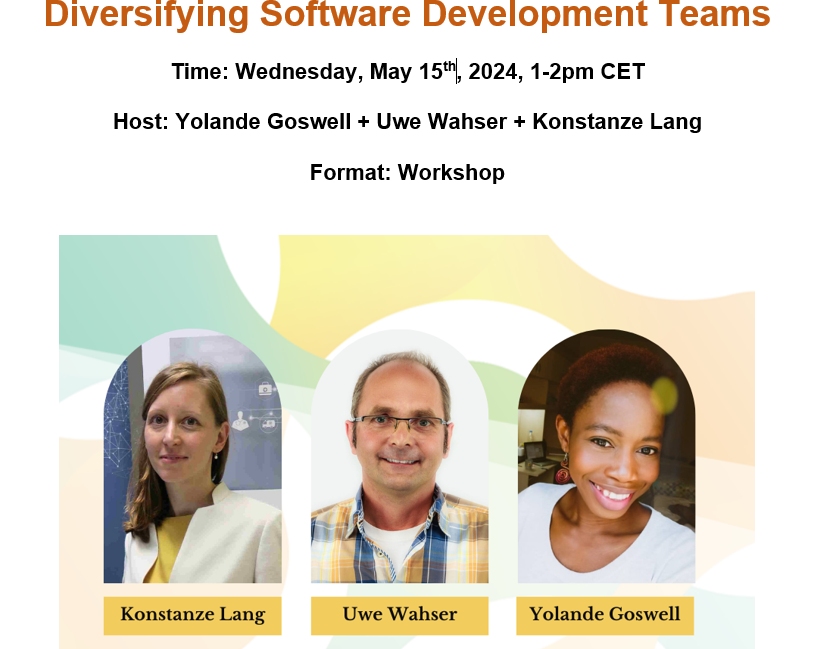
Diversifying Software Development Teams
Where are the women in the software development space? openIMIS raises this diversity question at GIZ’s Digital Africa Gathering 2024
At the GIZ internal conference ‘Digital Africa Gathering’ (13 – 16 May 2024) openIMIS hosted a discussion around the critical question: ‘Where are the women in the software development teams?’ After a quick introduction to openIMIS by Konstanze Lang, Uwe Wahser invited participants to consider why fewer women than men choose to work in this space.
Yolande Goswell, Systems and Project Manager at 2M Corp in The Gambia, shared her own experience of moving from working as a software developer to managing the software development team. Software developers typically work very long hours, while cultural norms often dictate that women take on the lion's share of the childcare and other work in the home. These factors combine to push women towards other areas of technology, such as data analysis and management. Like many women with young children working in technology, Yolande was faced with a dilemma, choosing to move into a ‘more manageable’ management role.
Sylvia Mwelu, Digital Health Technical Lead at Kenya Health Informatics Association (KeHIA), presented the latest data demonstrating that, of the 700,000 professional software developers in Africa in 2020, about a fifth (21%) are women. The majority of female developers reside in just five countries – Egypt, Kenya, Morocco, Nigeria and South Africa. While much more remains to be done, the encouraging news is that more and more initiatives encouraging girls to get involved in STEM and IT are taking place throughout the region.

In the lively discussion that followed, one participant highlighted the need to change male perceptions of women as being less capable of software development than their male counterparts. Another suggested that more men should stand up as ‘allies’ of women in their efforts to become successful software developers. A GIZ colleague in Cabo Verde talked of highly successful efforts by his government to encourage more girls to pursue careers in IT and STEM. Last but not least, several participants pointed to the need for more flexible working modalities that are better suited to working women’s - or rather working parents’ - multi-tasking roles.
Uwe Wahser closed the discussion with a plea to keep coming up with creative ideas on how to incentivise more female developers to respond to the openIMIS tenders. The openIMIS Coordination Desk is preparing an article on women in digital technology. If you have a good example or a story to tell, we’d love to hear from you!